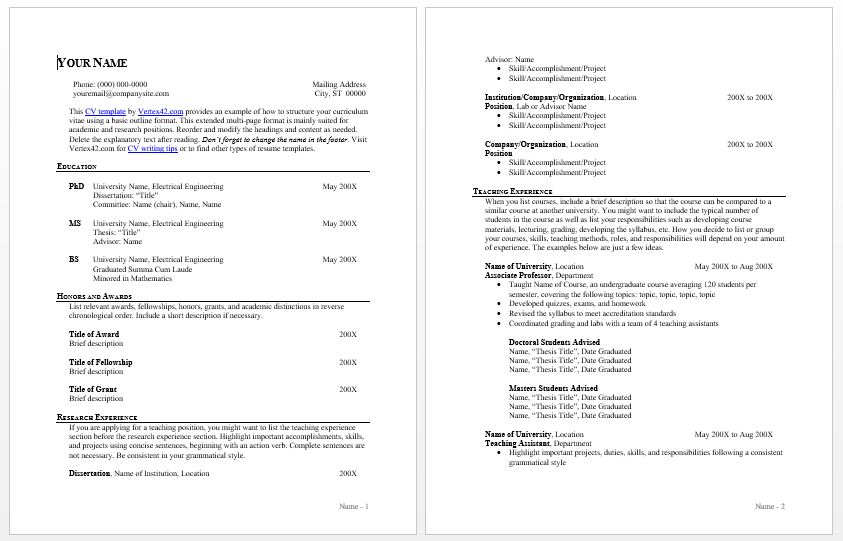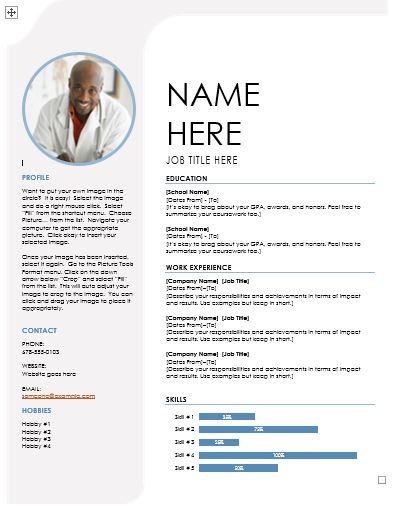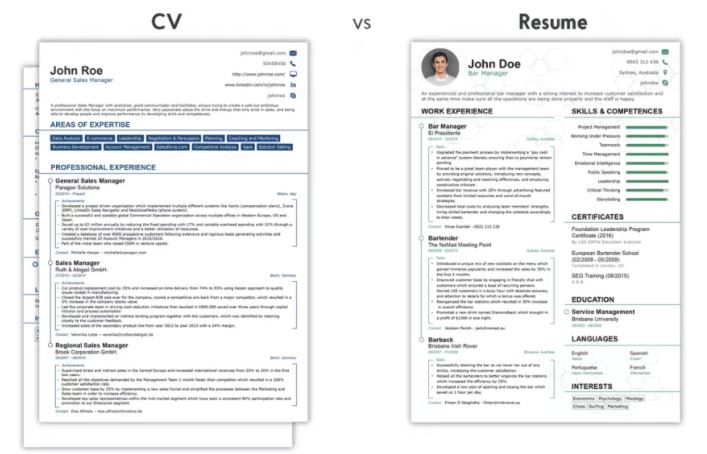What Makes CV Difference from Resume [w/ examples]
This article discusses:
When you are searching for a job, you need to give them the information that will convince you are capable of doing the offered position.
So, company would ask you to give them several documents that they need in order to consider whether you are fit for the job or not. In this case, the company will ask you to include this information in brief and detail.
Curriculum Vitae (CV) and Resume are used for this very reason. Not only for applying for a job, these two can also be used to apply for a scholarship and other positions.
Then what is the differences between CV and Resume?
In essence, these two document have the same meaning and the same use, even some employers or recruiters will use the terms CV and Resume interchangeably. But the two have a few distinct differences.
Understanding what the difference between CV and Resume is will help you in creating a document you need in order to get the position you want.
So the question is, what is the difference?
In what case should we use them?
And which one is better to get the position you want?
This article will give you a better understanding of the differences between the two.
What is CV?
CV is an abbreviation from the Latin word “Curriculum Vitae,” which means “course of life”.
It summarize your personal information in detail and can be used when you are applying for a job, a scholarship or other positions that require you background information.
The most important thing from CV is that it emphasizes your academic achievements and credentials. CV consist of a very comprehensive description of everything that you have achieved and done.
Because of this, CV usually will be longer, it can be up to 2 pages to 8 pages.
What to include on a CV:
- Name
- Contact Information
- Education History
- Skills and Work Experience
- Research and Publications
- Professional Associations and Licenses
- Awards
- Other information relevant to the position you are applying (depends on the institution)
Example of a CV:

What is resume
While Resume is from the French word ‘résumé’ which means a short concise document that summarize your education, work, experience, and skills.
Even though resume usually a short document, it still consist of every information that needed to show your background, such as work experience, skills, education, and accomplishments or achievements.
Resume will help you to show and highlight your abilities and skills, in a short and concise way, to convince employers and recruiters that you are qualified and hirable.
Resume often focus on skill and quality that will prove yourself that you are capable of doing the job well.
All the things you need to include on a Resume:
- Contact information
- Resume objectives
- Work Experience
- Education history
- Skills
- Others (Award, Courses, Resume Publications, etc)
Example of a Resume:

What are the differences between a CV and a Resume
These two documents may have the same function, but there are several differences between the two. Understanding the difference can benefit you in getting what you want.
In applying for a job or other using one of these documents can heighten your chance in getting them.
So what if the difference between a CV and a Resume?
These are their several difference you need to know:
The length
Usually, a CV is more comprehensive than a Resume. That is why usually CV consist of more than one page (two or more pages).
CV will include information about your academic background more extensively, by including your experience, degrees, research, awards and publications with more breadth.
While Resume consist of a shorter information written in a one page document (two pages at most). To make it short, usually Resume will take the form of bullet points and use short sentence.
In order to make Resume become short, usually you have to limit the information.
You have to eliminate certain things that is not needed, especially that is not needed for the position you are applying.
The Content
CV requires you to highlight your academic accomplishments and work experience.
That is why you will mention your educational background and your achievements in more breadth, including to write your publications and other achievements you have made.
Resume will emphasize your skills and quality, especially in the field you are applying for.
Since resume has to be short, you will have to write all the information briefly. Focusing on your objectives, skills, and work experience and eliminate certain things that will not be needed.
The layout
Since both documents emphasize different things, the placement of the information will also be different.
CV, who will highlight your academic and work experience will put your education and work related information first.
You can use many techniques, whether in a chronological, functional, or combination ways.
Resume that highlight your skill and quality will focused on that information. Resume will use bulletin points in order to keep your resume short.
Therefore you need to use short and concise words in order to fit every information needed.
Same as CV, you can also use chronological, functional, or combinations format to your resume.
Resume also have other format called targeted resumes in which the information you give only consist of information that is relevant to the specific position or job you apply for.
It depends on what position are you applying for.
The use
In theory, CV is used for you who wants to apply for a positions that related in the academic field, such as fellowship, grants and scholarship. While resume is used for you who wants to apply for a job.
But in practice, this could be different depending on the institution you are applying for.
These are the visualisation of the differences between a CV and a Resume:
As you can see above, the difference can be seen between CV and Resume.
CV looks more comprehensive and consist of many pages depending on the available information.
While Resume looks more concentrated and concise. It explain your information in bullet points and not explaining in long sentences.
In what case should I use a CV and a Resume?
After understanding what is CV and what is Resume respectively, we need to understand what are the differences between the two and when should we use them.
What should we use, a CV or a Resume, to attract employers or recruiters?
The use of these two documents can be different depending on the country you are or even what the company wants. Even the terms of these documents can be alternated between the other.
For examples, European countries use CV as the required document in searching for a career or a job, while countries like Australia, United Stat2wes, and Canada use a resume instead.
This piece of information can be beneficial for you. Because of the nature of these two documents is not really definite, it would be best for you to look at or ask to the requirement from the institution you wish to apply.
This is done in order to avoid any misunderstanding and eventually will increase your chance.
After knowing the meaning and the function of a CV and a Resume and when to use them, it is time to make your own CV or Resume.
We understand that making your own CV or Resume can be exhausting and time consuming.
That is why UrbanCV will gladly help you by providing templates you can use to make it easier for you to make the perfect CV or Resume fit for any job or position you want.

















